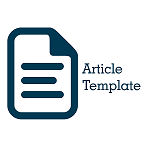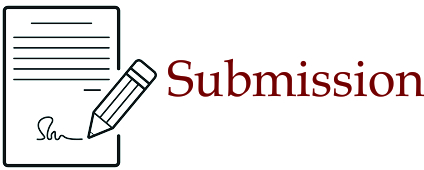Pengembangan Kurikulum Tahfizh Al Qur'an Di Pondok Pesantren Al Qur'an
Abstract
This reseach was aims to 1) develop a curricula document which have fulfill the expediency criteria for An Nur Qur’anic Islamic Boarding School of Malang, 2) know the expediency of the product that developed for An Nur Qur’anic Islamic Boarding School of Malang. The curriculum development in this reseach was used Beachamp Development Model which deliver: 1) the curricula document which have fulfill the expediency criteria to be applied in the An Nur Qur’anic Islamic Boarding School of Malang. 2) The application of the developed curriculum was been responsed good by the user. The distinction of this developed curricula with another curricula is the content of the developed curricula were cover the students need which include islamic sciences, qur’anic sciences, and sciences. In othes side, this curricula was developed the simmulation in its evaluation system. This simmulation was developed for testing students automatical memorize of Al Qur’an. So, the suggestion for this research is 1) adding the facility for supporting the student learning and memorizing. 2) The organizator should strengthen the student discipline system, especially in order to memorize the Holy Qur’an. 3) The Procurement of montly evaluation which was scheduled to evaluate student memorize progress.
Keywords
Full Text:
PDFReferences
Ahmad Rodli. (2017). Pengembangan Buku Ajar Bahasa Arab Berbasis Integrasi Interkoneksi untuk Mahasiswa Baru UIN Sunan Kalijaga Yogyakarta. Hal 111. Jurnal Pendidikan Madrasah, Volume 2, Nomor 1, Mei 2017.
Barni Mahyuddin & Mahdany Diny. (2017). Al Ghazali’s Thoughts on Islamic Education Curriculum. Dinamika Ilmu. Vol. 17 No. 2. P-ISSN: 1411-3031; E-ISSN: 2442-9651
Halim, A. dkk. (2005). Manajemen Pesantren. Yogyakarta: Pustaka Pesantren.
Hamalik, Oemar. (2016). Dasar-Dasar Pengembangan Kurikulum. Bandung: PT Remaja Rosydakarya.
Haryanti, Nik. (2014). Ilmu Pendidikan Islam. Malang: Gunung Samudera.
Umar, Bukhari. (2011). Ilmu Pendidikan Islam. Jakarta: Amzah Bumi Aksara.
Mankhina, Yana. Learner Agency and the Curriculum: a Critical Realist Perspective. The Curriculum Journal Vol. 30, 2019 – Issue 3.
Widyastono, Herry. (2015). Pengembangan Kurikulum di Era Otonomi Daerah: dari Kurikulum 2004, 2006, ke Kurikulum 2013. Jakarta: Bumi Aksara
Habibi Mohammad Mizan. (2017). Islamic Education Curriculum Framework Development Based on Multicultural Values. Proceedings of 99th the IIER International Conference, Mecca, Saudi Arabia. ISBN: 978-93-86291-88-2
Hasil wawancara peneliti dengan pimpinan pondok pesantren Al Qur’an An Nur kota Malang pada 03 Oktober 2017 pukul 14.57 WIB
Pawito. (2007). Penelitian Komunikasi Kualitatif. Yogyakarta: LKiS Yogyakarta.
Suparlan. (2012). Tanya Jawab Pengembangan Kurikulum dan Materi Pembelajaran. Jakarta: PT Bumi Aksara.
Tim Pengembang Ilmu Pendidikan. (2007). Ilmu dan Aplikasi Pendidikan. Bandung: PT Imtima.
Wahyuni, Sri. (2016). Curriculum Development in Indonesian Context. Universum. Vol. 10 No. 1 Januari 2016.
Widoyoko, E.P. (2009). Evaluasi Program Pembelajaran, Panduan Praktis bagi Pendidik dan Calon Pendidik. Yogyakarta: Pustaka Pelajar
Yaacob Solehah, dkk. (2008). The Concept of an Integrated Islamic Curriculum and its Implications for Contemporary Islamic Schools. The Best Paper of International Conference in Islamic Republic of Iran on 20-22 Feb 2008 which organized by OIC, ISESCO and The Ministry Education of Islamic Republic Iran
DOI: https://doi.org/10.18860/jmpi.v4i1.5850
Refbacks
- There are currently no refbacks.
Copyright (c) 2019 J-MPI (Jurnal Manajemen Pendidikan Islam)

This work is licensed under a Creative Commons Attribution-NoDerivatives 4.0 International License.
Fakultas Ilmu Tarbiyah dan Keguruan
Universitas Islam Negeri Maulana Malik Ibrahim Malang
Jalan Gajayana 50 Malang 65144, Jawa Timur, Indonesia
Telp/Fax: +62341-552398 Email: jmpi@uin-malang.ac.id

This work is licensed under a Creative Commons Attribution-ShareAlike 4.0 International License.
INDEXED BY:















